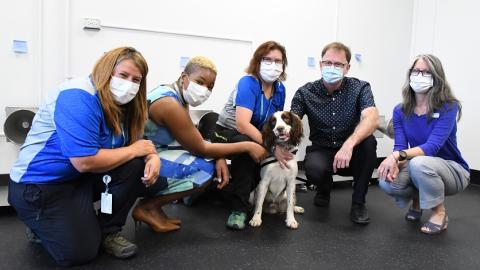Information bulletin
Vancouver Coastal Health public health issues e-scooter safety guidance
VANCOUVER, B.C. – Vancouver Coastal Health (VCH) public health strongly advises members of the public who use electric kick scooters (e-scooters) to ensure they keep safety top of mind leading into the summer months.
Coming into warmer weather when an increase in e-scooter use is anticipated, there are a number of steps you can take to ride safely and reduce your risk of injury. These include:
- Avoid riding under the influence of drugs or alcohol
- Ride at a safe speed and in designated areas, such as protected lanes and traffic-calmed streets (avoiding sidewalks)
- Wear a helmet
- Know the rules- familiarize yourself with where you can and cannot ride
- Ensure your e-scooter is equipped with a braking system with added safety features, including a bell, lights and reflectors
- If you are a less experienced rider, start slow and in areas of low traffic
Following the implementation of provincial legislation in April 2021, jurisdictions across B.C., including Vancouver, Richmond and the North Shore, have recently implemented e-scooter bylaws to allow for local use of e-scooters. This has led to an increase in the use of e-scooters across many B.C. roads. As this new mode of transportation is sharing safe space on the road with other modes, public health is committed to working with municipal partners to ensure injury prevention remains the top priority, keeping the roads safe for all users.
"We note an uptick in residents utilizing this lower-carbon mode of transit to commute for work and leisure. Public health has worked as a consultative partner at the table in the roll-out of municipal bylaws to regulate their safe use across a number of jurisdictions in our region", said Dr. Michael Schwandt, Medical Health Officer with VCH public health.
He continued, "Coming into warmer summer weather and based on available evidence, we anticipate an increase in e-scooter use in the months ahead. We urge the public to take necessary safety measures to reduce their risk of injury and to protect pedestrians and other road users. Simple actions like riding in designated spaces where possible, wearing a helmet and not riding under the influence of drugs or alcohol significantly reduces the risk of injury."
Similar guidance can be followed by those engaged in other active modes of transit, such as cycling, skateboarding and roller skating/blading.
E-scooter use without wearing a helmet could pose a risk of brain injuries. Speaking about providing care to those with brain injuries, Dr. Harvey Hawes, Trauma Surgeon at Vancouver General Hospital said, "Experiencing a traumatic brain injury can have significant and life alternating impacts on your quality of life. Taking a few seconds to put on a well fitting helmet before getting on an e-scooter, bike or other active mode of transit, is the single best investment you can make to protect your health and safety while on the road."
VCH public health continues to advocate for dedicated and safe spaces for healthy modes of transportation and for public recreation. Evidence continues to demonstrate that spending time outdoors and in nature significantly benefits mental and physical wellbeing. Guidance on the safe use of e-scooters and designated areas for riding is available on the websites of some of our municipal partners (City of Vancouver, City of North Vancouver, District of North Vancouver, the City of Richmond) and the Ministry of Transportation and Infrastructure's website.
VCH is committed to delivering exceptional care for all 1.2 million people within the ancestral, traditional and unceded homelands of 14 First Nations. With more than 26,000 staff and medical staff, VCH is British Columbia's hub of health-care innovation, research and academic excellence, providing specialized care to patients throughout the province. Learn more at vch.ca.

















